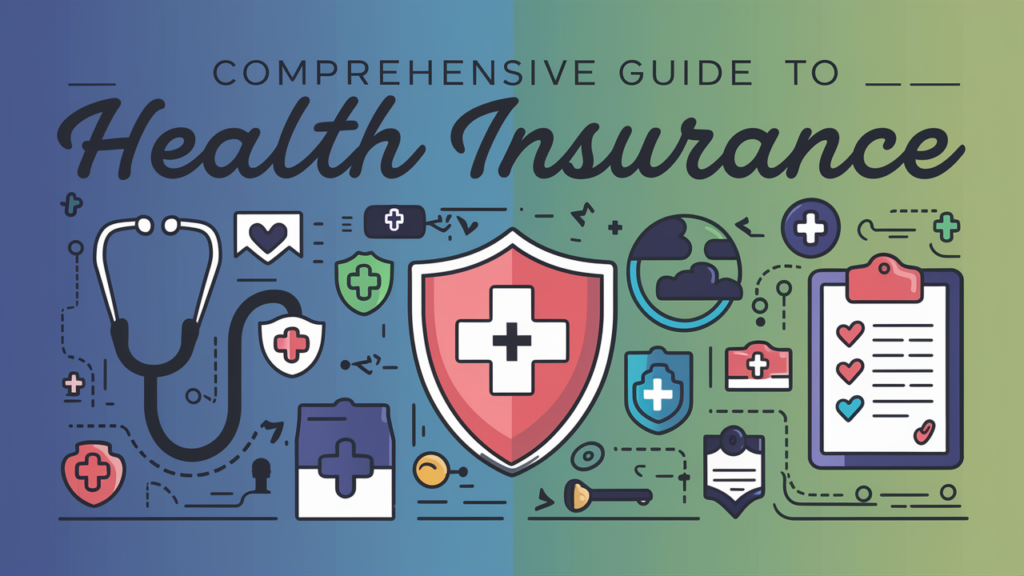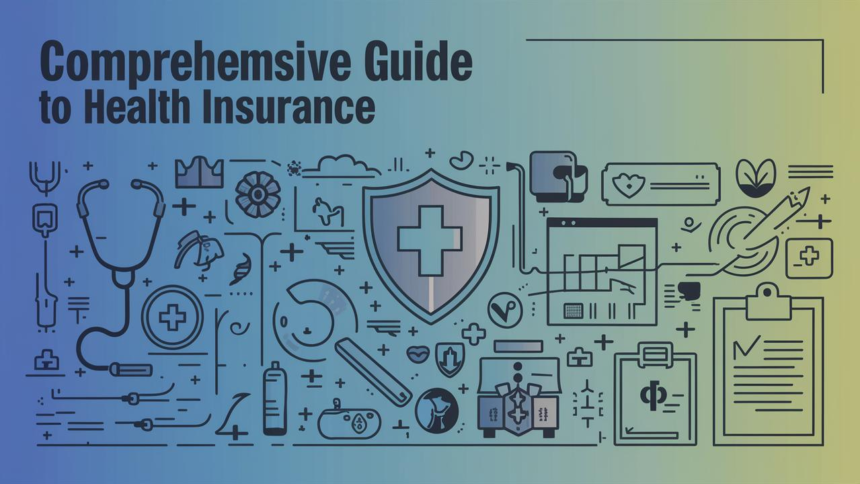Health insurance is a critical component of personal financial planning, offering protection against the high costs of medical care. This detailed guide explores the various aspects of health insurance, including its types, benefits, and tips on selecting the right plan.
Introduction to Health Insurance
Health insurance is a contract between you and an insurance company where you pay regular premiums, and in return, the insurer covers your medical expenses as per the policy terms. These expenses can include doctor visits, hospital stays, surgeries, medications, and preventive care. Health insurance reduces the financial burden of healthcare costs and ensures that you receive necessary medical treatment without significant out-of-pocket expenses.
Types of Health Insurance
Employer-Sponsored Health Insurance
Employer-sponsored health insurance is provided by many employers as part of employee benefits. This type of insurance typically offers comprehensive coverage at a lower cost since employers often subsidize a portion of the premiums. Key features include:
- Group Coverage: Policies cover a group of employees, spreading the risk among many people.
- Lower Premiums: Employers contribute to the premium costs, making it more affordable for employees.
- Comprehensive Benefits: Often includes coverage for doctor visits, hospital stays, prescription drugs, preventive care, and sometimes dental and vision care.
Individual Health Insurance
Individual health insurance is purchased by individuals directly from insurance companies or through health insurance marketplaces. This option is suitable for those who do not have access to employer-sponsored insurance. Key aspects include:
- Personalized Plans: Individuals can choose plans that best meet their healthcare needs and budget.
- Open Enrollment Periods: Plans are typically purchased during annual open enrollment periods or special enrollment periods triggered by life events such as marriage or job loss.
- Variety of Options: A wide range of plans are available with different levels of coverage and cost.
Government Programs
Government health insurance programs provide coverage to specific groups of people, including low-income individuals, the elderly, and military personnel. Major programs include:
- Medicare: A federal program providing coverage for people aged 65 and older, and certain younger individuals with disabilities.
- Medicaid: A joint federal and state program offering coverage to low-income individuals and families.
- Children’s Health Insurance Program (CHIP): Provides coverage for uninsured children in low-income families that do not qualify for Medicaid.
- TRICARE: Provides health benefits for military personnel, retirees, and their families.

Short-Term Health Insurance
Short-term health insurance offers temporary coverage for individuals during transitional periods, such as between jobs or waiting for other insurance to start. Key features include:
- Temporary Coverage: Typically provides coverage for a few months up to a year.
- Limited Benefits: Generally covers emergency care and some preventive services but may exclude pre-existing conditions and comprehensive benefits.
- Lower Cost: Premiums are usually lower than long-term plans, but out-of-pocket costs can be higher.
Benefits of Health Insurance
Health insurance provides numerous benefits that are crucial for maintaining financial and physical well-being. Here are some key advantages:
Financial Protection
Health insurance protects against the high costs of medical care. Without insurance, even a minor medical procedure or emergency room visit can result in significant expenses. Insurance helps cover these costs, reducing financial strain and preventing medical debt.
Access to Preventive Care
Health insurance plans typically include coverage for preventive services such as vaccinations, screenings, and annual check-ups. Preventive care is essential for early detection and management of health conditions, ultimately improving long-term health outcomes.
Comprehensive Coverage
Most health insurance plans offer comprehensive coverage, including hospital stays, surgeries, prescription drugs, and mental health services. This broad range of services ensures that you have access to necessary medical care when you need it.
Improved Health Outcomes
Having health insurance encourages individuals to seek medical care when needed, leading to better health outcomes. Regular doctor visits and access to medications and treatments help manage chronic conditions and prevent complications.
Peace of Mind
Knowing that you have health insurance provides peace of mind. You can live with the assurance that unexpected medical expenses will be covered, allowing you to focus on your health and well-being without financial worries.
How to Choose the Right Health Insurance Plan
Selecting the right health insurance plan involves several important considerations:
Assess Your Healthcare Needs
Evaluate your healthcare needs based on your medical history, current health status, and any ongoing treatments. Consider factors such as the frequency of doctor visits, prescription medications, and any upcoming medical procedures.
Compare Plans
Use online marketplaces and comparison tools to compare different health insurance plans. Look at premiums, deductibles, copayments, and out-of-pocket maximums. Ensure that the plans you are considering include your preferred healthcare providers and cover necessary services.
Understand the Coverage
Carefully review the coverage details of each plan. Pay attention to the services covered, including preventive care, emergency care, hospital stays, and prescription drugs. Check for any exclusions or limitations that may affect your access to care.
Consider Your Budget
Balance the cost of premiums with the coverage provided. While lower premiums may be appealing, they often come with higher deductibles and out-of-pocket costs. Choose a plan that fits within your budget while providing adequate coverage for your healthcare needs.
Review the Network
Ensure that the health insurance plan includes a network of healthcare providers that you are comfortable with. Verify that your preferred doctors, specialists, and hospitals are in-network to avoid higher costs for out-of-network care.
Check for Additional Benefits
Some health insurance plans offer additional benefits such as wellness programs, telemedicine services, and discounts on gym memberships. These added perks can enhance your overall healthcare experience and support a healthy lifestyle.
Conclusion
Health insurance is a vital part of protecting your health and financial well-being. Understanding the different types of health insurance, their benefits, and how to choose the right plan can help you make informed decisions. Whether you opt for employer-sponsored insurance, an individual plan, or a government program, having health insurance ensures that you have access to necessary medical care and financial protection against high healthcare costs. By carefully assessing your needs and comparing options, you can find a health insurance plan that provides the coverage and peace of mind you need.




